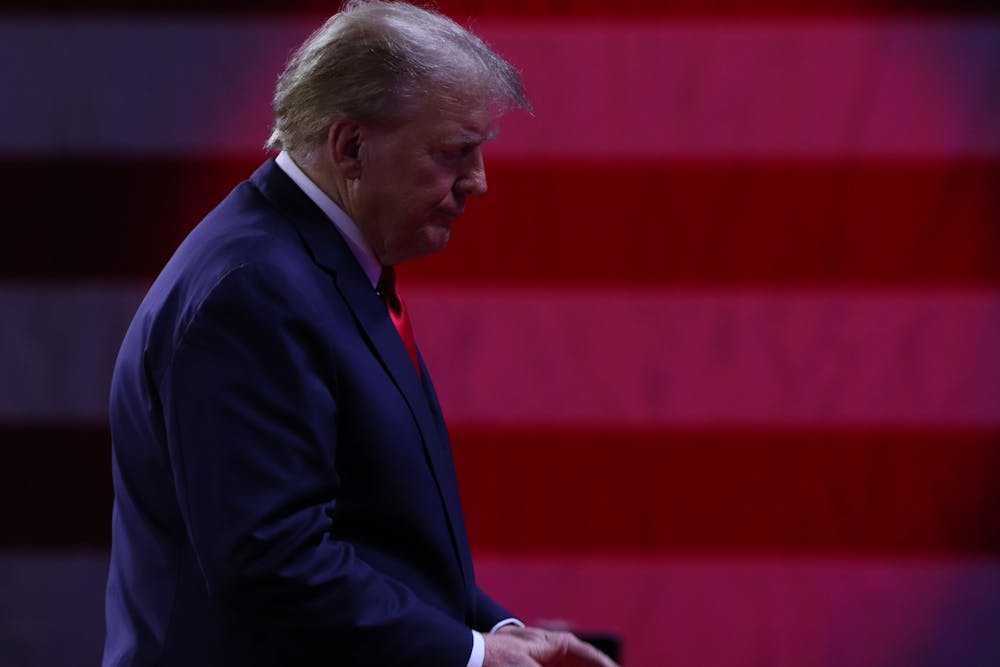Tuesday marks the 65th day of Donald Trump’s second term as president. And despite what his mob of social media influencers like to believe and his proclamations, it is becoming clear that Trump is not “the most anti-war president in history.”
To be clear: this conclusion is not based on the fact that he did not end the Russian war in Ukraine on day one like he exaggerated he would while on the campaign trial. It is instead based on the still brewing situation between the United States, Israel, Iran and its proxies — Hezbollah, Hamas and the Houthi rebels of Yemen.
Trump initially made overtures to peace, negotiating a ceasefire between Israel and Hamas with assistance from Egypt and Qatar. That temporary truce was broken earlier in this month when Israel resumed airstrikes in the already beleaguered Gaza strip — a decidedly ghoulish event, considering it followed an AI-created video that Trump posted to social media a month ago that featured he and Israeli Prime Minister Benjamin Netanyahu lounging in a gaudy dystopian city with an exuberant Elon Musk throwing money around.
To achieve such displacement for their brave new world, Israel relaunched airstrikes that have added 600 additional deaths to the grand toll of 50,000, according to reporting by The Wall Street Journal. Additionally, the Journal reports that Israel has deployed ground forces to divide the strip in zones using “security buffers.” The forces have also stopped humanitarian aid from entering.
The attack on Israel on Oct. 7 was a tragedy. But the remedy to suffering is not to inflict more suffering, and it is becoming hard to swallow that Hamas forces come close to 50,000, meaning significant civilian deaths have likely occurred.
Unfortunately, the conflict may only expand as it happens against a backdrop of military posturing by the United States and Israel’s troop movements into Syria.
Last week, Trump ordered attacks against the Houthis, a group with ties to Iran, in an attempt to free up shipping in the Red Sea. The Houthis began blockading Israeli ships following their decision to restart attacks on the Gaza Strip. If that was not enough to implicate U.S. armed forces actively participating in Israel’s war, Trump’s messaging does.
After the U.S. airstrikes began last week, Trump told reporters, “Every shot fired by the Houthis will be looked upon, from this point forward, as being a shot fired from the weapons and leadership of IRAN, and IRAN will be held responsible, and suffer the consequences, and those consequences will be dire!”
That is a direct overture to all-out war. If means and motive are established, it only leaves opportunity, which became available at the end of last year when Syria’s leader Bashar al-Assad, was forced to flee to his country after rebel groups seized the country.
Israel has moved its forces into Southern Syria in the aftermath, and both they and the United States have launched attacks on anti-aircraft artillery and abandoned naval vessels. This leaves a clear path for strikes against Iran.
As of now, we remain at a simmer, just shy of reaching a boiling point. It is reasonable to fear that the U.S. is spiraling toward a renewed war in the Middle East. Despite all the chatter, Trump is not anti-war when it comes to involving Americans in Israel’s war. I wonder if Netanyahu has thanked them.










 By Allyson Ritchey" />
By Allyson Ritchey" />





The Slate welcomes thoughtful discussion on all of our stories, but please keep comments civil and on-topic. Read our full guidelines here.